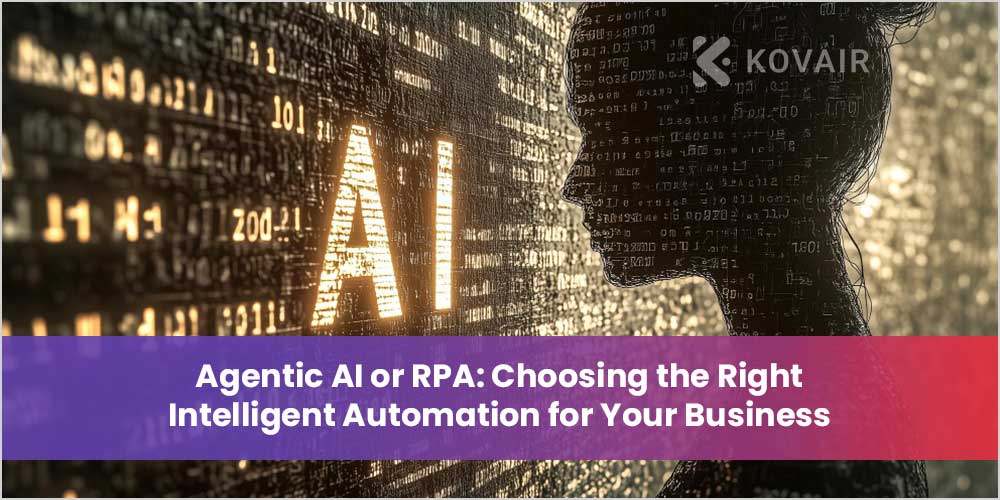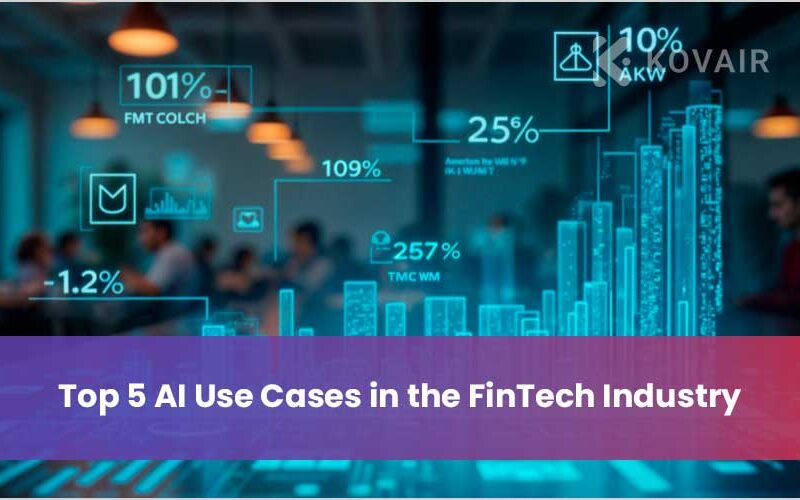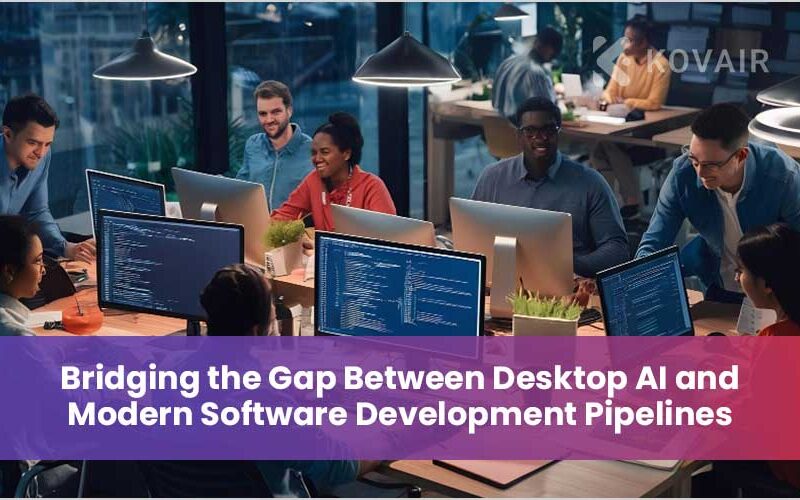
Today, a trend in the industries is the race toward digital transformation, and businesses are perpetually in search of those tools that will help them automate, scale, and optimize the work at hand. The two main buzzwords among automation solutions today are RPA and Agentic AI. While both fall under the umbrella of intelligent automation solutions, the specific purpose and list of advantages give each set of solutions a separate identity.
How do you know which of the two given choices is appropriate for your business? Do your current workflows suffice with just RPA, or should you look toward investing in Agentic AI for the extra layer of cognitive autonomy?
Understanding the Basics
What Is Robotic Process Automation (RPA)?
Robotic Process Automation (RPA) uses software bots to perform repetitive, rule-based, clerical-type tasks in a company environment. These programs follow a given set of instructions and predefined workflows with complete dependability and speed. RPA is considered best applicable in cases where the data is structured, and the level of variation is very low.
Common applications of RPA include:
- Data entry across platforms
- Invoice and billing processing
- Generating standardized reports
- Automating email responses
- Connecting legacy systems that lack APIs
Thanks to RPA services, which reduce manual work and errors, productivity can be increased. There are advanced enterprise platforms from top robotic process automation consulting such as UiPath, Automation Anywhere, and Blue Prism, thus easing the automation of processes conducted in departments like finance, HR, and customer service.
What is Agentic AI?
With Agentic AI, software agents have achieved what might be called autonomy coupled with the ability to reason and behave goal-oriented. While RPA bots basically operate deterministically, Agentic AI agents provide situational assessment and weigh newly incoming data to make intelligent decisions on their own without step-by-step instructions given by humans.
These agents are designed to:
- Set and pursue goals independently
- Adapt to changing environments or inputs
- Reason through ambiguous or unstructured data
- Interact fluidly with multiple systems or interfaces
Agentic AI performs well in scenarios where the outcome is known but the trajectory to achieve it successfully unfolds with time. Customer support from Agentic AI could solve sophisticated problems by taking the route that best fits the user’s inputs and historical data, almost like a very smart assistant that can decide for itself. If businesses are looking for intelligent automation services that transcend simple task execution, Agentic AI begins to stand out as the real power behind digital transformation.
Core Differences Between RPA and Agentic AI
| Feature | RPA | Agentic AI |
| Task type | Rule-based, repetitive | Goal-based, adaptive |
| Flexibility | Low – follows scripted rules | High – can re-plan based on feedback |
| Input data | Structured | Unstructured or dynamic |
| Human intervention | Frequent setup and updates are needed | Minimal, only strategic supervision |
| Use cases | Invoice processing, HR onboarding, etc. | Customer support agents, procurement |
| Learning capability | No learning; follows scripts | Uses machine learning or reasoning |
When to Choose RPA Services
RPA services are an excellent first step into automation for businesses that want:
- Quick ROI: RPA implementation is relatively fast and low-cost.
- Process accuracy: Bots eliminate manual errors.
- Non-invasive integration: RPA tools work with existing systems through the UI.
- Scalability: Easy to deploy multiple bots for the same tasks.
Best-Fit Scenarios for RPA
- Finance departments are automating reconciliations and ledger updates
- HR teams handling employee onboarding and payroll
- Retail companies are syncing inventory data between systems
- Healthcare providers extracting patient info from forms
In all these cases, the tasks are predictable, rule-driven, and time-consuming.
When to Choose Agentic AI
Agentic AI is best suited for companies that are ready to move beyond mere automation and embark on the path of cognitive intelligence at scale. Businesses should consider agentic AI when:
- Tasks require dynamic decision-making
- Information is incomplete or unstructured
- Processes evolve regularly with new data
- Goal outcomes are clear, but the paths vary
Best-Fit Scenarios for Agentic AI
- Virtual agents offering 24/7 customer support, handling complex queries
- AI procurement agents sourcing vendors based on shifting prices or priorities
- Sales AI agents that autonomously follow up with leads and customize pitches
- Supply chain agents are adapting routes based on disruptions or real-time data
An agentic AI system offers a more advanced enterprise autonomy; its implementation is far more complicated than that of an agent AI, but potential rewards include deeper insights and greater adaptability.
Combining RPA with Agentic AI
In many real-world scenarios, the best outcomes come not from choosing one over the other, but from combining RPA with agentic AI for a hybrid intelligent automation solution.
Example Use Case: Intelligent Invoice Processing
- RPA extracts structured data from invoices and enters it into the system
- Agentic AI flags anomalies, predicts potential fraud, or routes exceptions to the right stakeholder
There is a synergistic nature to this, with speed and intelligence of the prime reasons top-tier RPA companies today are investing in AI partnerships and integrations.
Evaluating the Right Fit for Your Business
Here’s a decision checklist to help you determine whether to invest in RPA services or agentic AI (or both):
Go for RPA if:
- You need quick wins with automation
- Your tasks are high-volume, low-variance
- You lack the budget or infrastructure for advanced AI
- Your current team is familiar with process documentation
Go for Agentic AI if:
- You deal with changing or unstructured workflows
- You want agents that learn and improve over time
- Your digital roadmap includes autonomous systems or self-healing processes
Top Benefits of Using RPA and Agentic AI Together
| Benefit | Impact |
| Higher automation coverage | Structured + unstructured tasks handled |
| Enhanced decision-making | AI agents supplement rules with logic |
| End-to-end workflow control | Less human dependency, more agility |
| Competitive advantage | Faster, smarter, and cost-effective ops |
This dual strategy ensures that your business not only runs efficiently but also adapts to change, a crucial differentiator in today’s unpredictable markets.
Choosing the Right Partner for Intelligent Automation
Whether you’re exploring RPA services for the first time or ready to pilot agentic AI, choosing the right implementation partner is key.
What to Look For in an Automation Partner
- Experience across domains – Financial services, healthcare, retail, etc.
- Strong RPA ecosystem partnerships – UiPath, Automation Anywhere, Blue Prism
- AI development capability – Machine learning, NLP, LLMs, etc.
- Post-deployment support – Maintenance, updates, and training
Conclusion: Strategic Automation Is Not One-Size-Fits-All
In today’s fast-paced and changing digital ecosystem, automation cannot be considered a luxury-it is a necessity. He/she must recognize the distinction between tactical automations by way of RPA services and strategic, adaptive automation empowered by Agentic AI. RPA is suitable for removing inefficiencies since processes are strictly rule-based and repetitive, which is an excellent starting point for operational streamlining. As the company matures digitally, Agentic AI comes next in building intelligent autonomous systems that can reason and adapt in real-time. The best part is blending both. In a hybrid model, consistency and speed from RPA meet the cognitive flexibility of Agentic AI to build a resilient and scalable automation ecosystem. This approach allows businesses to optimize the workflows they are running today, while simultaneously building for change and uncertainty. Investing in intelligent automation solutions is an investment to propel a company to long-term growth, innovation, and a competitive edge.



